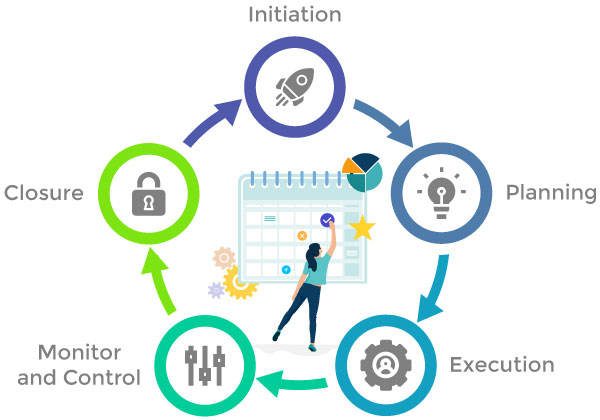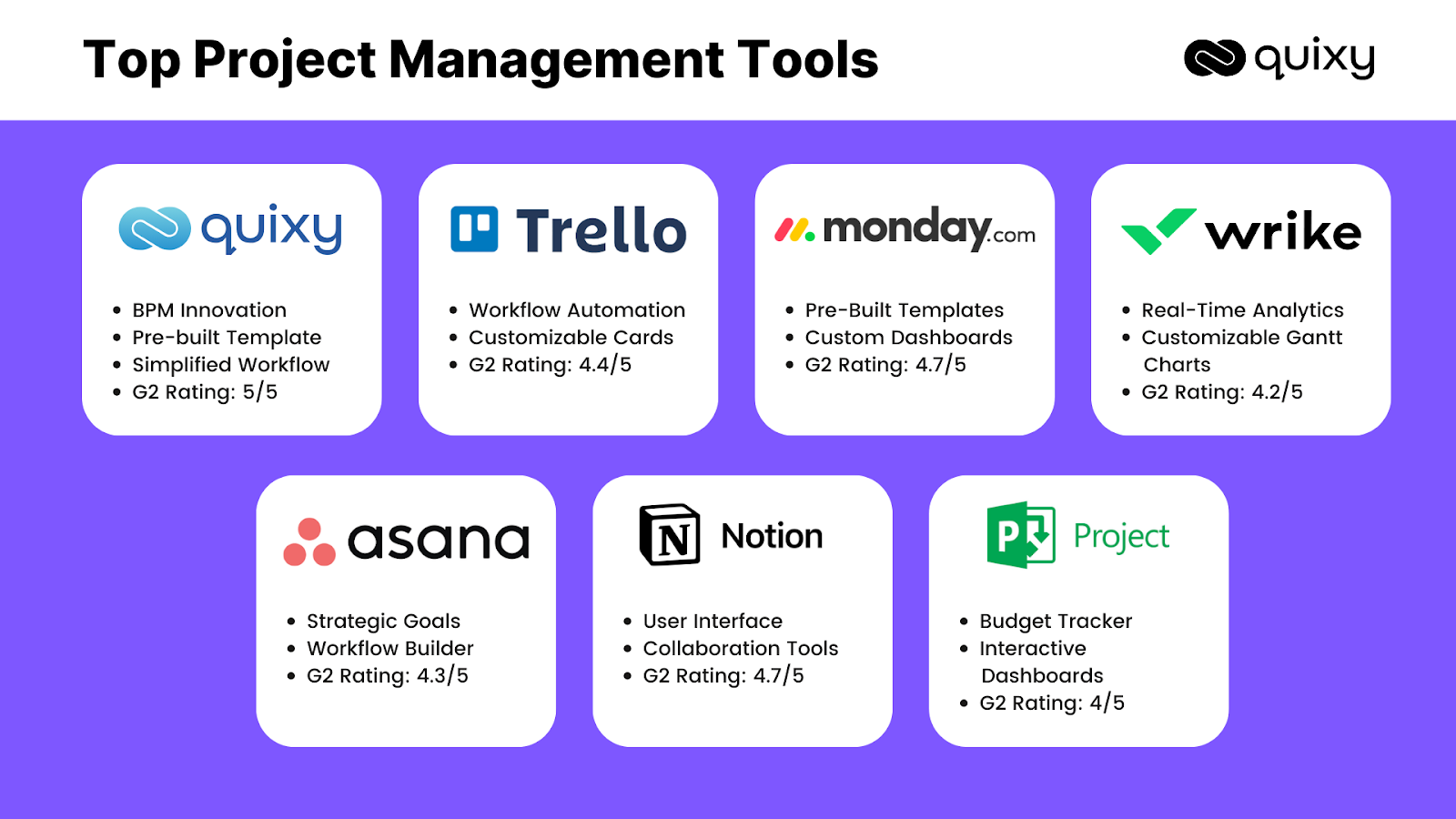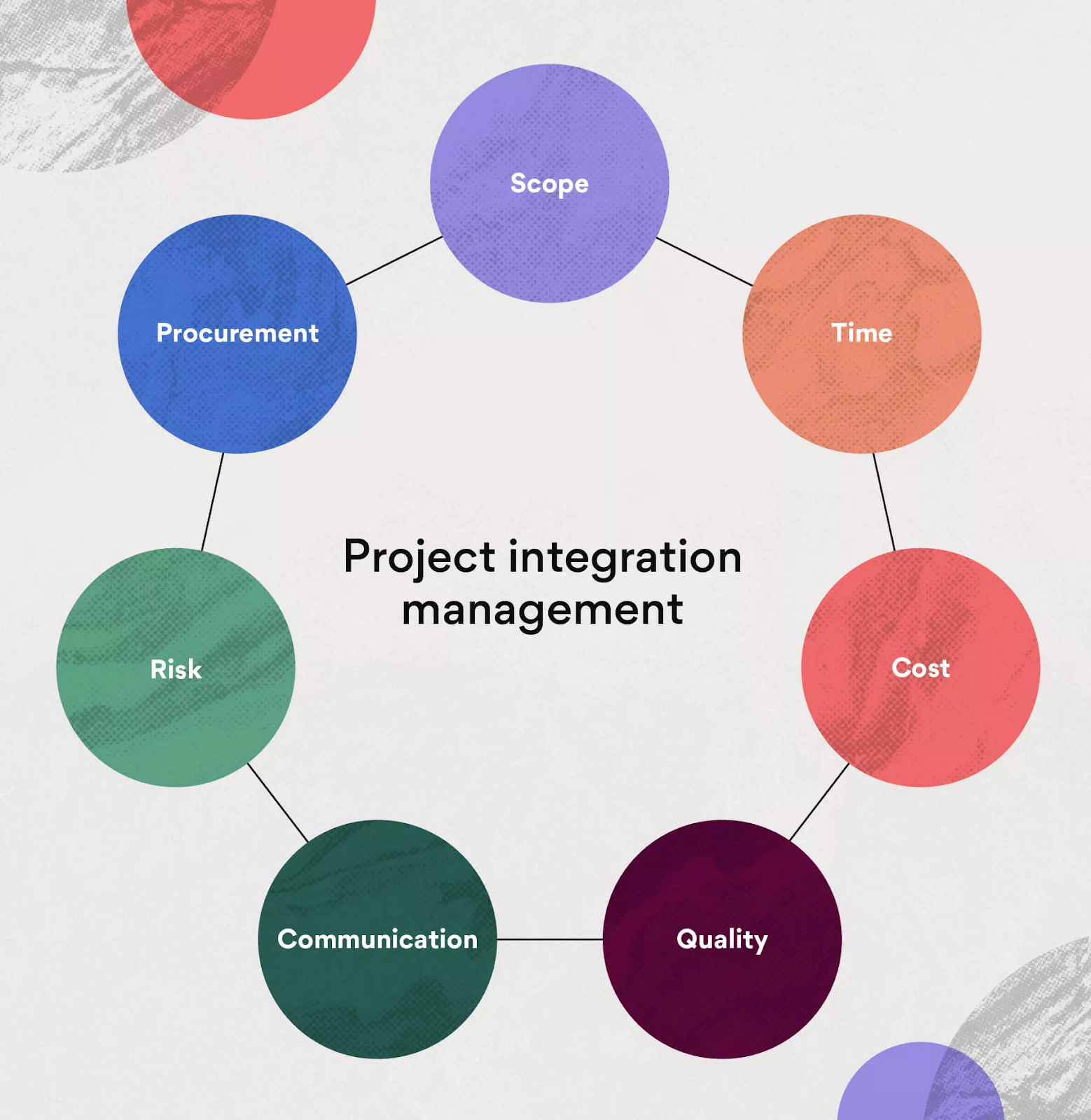Efficient project management hinges on a skilled project manager deploying the right strategies and tools. The backbone of effective management lies in defining the project scope, setting precise objectives, and adeptly managing tasks.
Diving deeper, we’re talking project planning that’s on point. Resource allocation and risk management are the secret sauces, ensuring everything runs smoother than a well-oiled machine and keeping your project on track without missing a beat.
Understanding the importance of organizing project management
When it comes to project management, the project manager is your go-to person. They set the stage with a game plan that’s detailed and dialed in, ensuring every play runs as planned. From crafting killer strategies to picking the right tools, they keep the ball rolling, making sure project scope isn’t just a buzzword but a reality.

With skills that could put a Swiss Army knife to shame, project planning is the glue holding everything together—task management, risk management, and rallying the troops for that perfect execution.
The role of organization in project management
Organization is pivotal in structuring activities. The manager's job is to develop a comprehensive plan, set objectives, and oversee execution and monitoring. Key roles include task management, resource allocation, and risk management. Using tools and strategies ensures adherence to scope by the team. Strong organizational skills guide planning and control for successful completion.
Benefits of effective project management organization
Effective organization offers numerous benefits. A manager’s role involves a detailed plan ensuring adherence to objectives and scope. This includes effective task management, resource allocation, monitoring, and control for smooth execution. An efficient structure cultivates a cohesive team, strengthened by clear planning and strategies.
Tools make risk management robust, improving outcomes. A well-organized structure hones skills across the team—a long-term asset.
Key strategies for organizing project management
A top-notch project manager knows their stuff—defining the project scope isn’t just talk, it’s the blueprint. With a plan that covers every nook and cranny, from tasks to resources and risks, they ensure the project doesn’t just start strong but stays strong.
Keeping an eagle eye on progress, adapting on the fly, and leveraging tools that streamline everything—these are the tricks up their sleeve that make sure the project hits its targets every time.
Setting clear goals and objectives
A proficient manager is crucial in defining clear goals and objectives. A well-drawn plan encapsulates significant aspects like objectives, scope, task management, and resource allocation for efficient execution. The manager also performs meticulous monitoring and control using various tools. Formulating robust strategies, including risk management and planning, is key. This holistic approach drives the team towards success.
Creating a detailed project plan
Here’s where the magic happens. The project manager, armed to the teeth with mad skills, crafts a plan that’s nothing short of comprehensive. Defining the scope, setting objectives, and mapping out tasks—it’s the road map to success.
Execution is meticulous, with monitoring and control keeping things tight and on track. And the team? They’re the unsung heroes, turning plans into action, ensuring no stone is left unturned for project success.
Establishing effective communication channels
Establishing communication channels is crucial for a manager. This involves designing a clear plan outlining scope, objectives, and task management protocols. These channels streamline execution and set the base for monitoring and control.
The team must be well-acquainted with these channels for seamless communication. This can be facilitated by advanced tools, structured strategies, and appropriate resource allocation. These channels also aid in reliable risk management and enhance overall skills.
Implementing risk management strategies
Managers play a crucial role in risk management within planning and execution. They leverage skills to identify threats and create mitigation plans. This includes monitoring scope, task management, and resource allocation.
Using tools that enhance control and align objectives with reality, they ensure the project not only stays on track but also passes the finish line with flying colors. It’s not just managing; it’s mastering the art of project success.
Top tools for project management organization

When it comes to project management, it’s a whole new ball game. You’ve got a ton of tasks, a complex project scope, and a diverse team to manage. It’s like juggling on a tightrope. But don’t sweat it, there are some key tools that can make your life a lot easier.
These tools are the bread and butter of project management. They help you set clear objectives, create detailed plans, and monitor your project like a hawk. They’re all about efficiency, productivity, and making your project a roaring success.
Overview of project management tools
If you’re a project manager looking to hit the ground running, these tools are your best friends. They help you manage tasks, define your project scope, and set realistic objectives. It’s like having a personal assistant for your project.
These tools are not just about planning and monitoring, they also enhance your project management skills, improve project control, and foster team collaboration. Whether you’re managing a corporate behemoth or a small team, these tools can make a world of difference.
Features to look for in a project management tool
Looking for a project management tool? Here’s what you should keep an eye out for:
- Task Management: It should be your go-to for distributing, tracking, and reporting tasks.
- Resource Allocation: It should let you assign and control resources like a pro.
- Risk Management: It should help you identify, assess, and control project risks.
The right tools can take your project management skills to the next level and help your team deliver on your project’s goals.
Exploring specific project management tools
Managing a project is no walk in the park. You need to create a detailed plan, define your project scope, and strategize your resource allocation. But with the right tools, it can be a breeze.
Tools like Gantt charts can help you plan, execute, and monitor your project. They give you a bird’s eye view of your tasks and are perfect for project control. Other tools, like risk management software, can help you identify, assess, and prioritize risks.
And let’s not forget about digital collaboration tools. They’re crucial for communication and collaboration within your team, making the whole process more efficient and streamlined.
Asana: A comprehensive project management solution
Asana is a project manager’s dream come true. It supports project planning and execution, and lets your team track project objectives and monitor progress. It’s a one-stop solution for task management, project control, and resource allocation.
But that’s not all. Asana also embraces risk management and provides a thorough visualization of the project scope. It helps your team develop effective strategies, enhance their project management skills, and ensure smooth project monitoring.
Trello: Simplifying project management with boards
Trello is like the Swiss Army knife of project management. It displays project plans visually, making it easy to oversee project execution and control. It uses boards, lists, and cards to organize tasks, making task management a piece of cake.
Trello simplifies project planning by enabling your team to define the project scope, allocate resources, and set clear objectives. It also assists in applying project management strategies efficiently and improving risk management.
Slack: Enhancing communication in project management
Slack is fast becoming a must-have tool for project managers. It facilitates project planning and management, providing features for task management, resource allocation, and risk management. Plus, it bolsters communication, which is essential for understanding project objectives and scope.
During project execution, Slack aids in real-time project monitoring and control, making it easier for your team to stay aligned with the project plan. Its channels can also be used to discuss project management strategies, enhancing project management skills among team members.
Microsoft Project: A robust tool for large-scale projects
Microsoft Project is a powerhouse of a project management tool. It simplifies project planning, task management, and resource allocation. It provides a broad landscape for project managers to define project scope, set accurate objectives, and establish an effective plan.
With Microsoft Project, your team has precise project control, enabling effective project execution and monitoring. Its robust functionality enhances risk management and empowers project managers with essential project management skills. It’s the ideal choice for managing large-scale projects.
Integrating project management tools into your workflow
Proper planning can often be the defining factor between a successful and failed project. One such effective technique is the use of an implementation project plan. This involves the application of project management procedures and techniques in order to deliver quality results on time and within budget.

As a project manager, it's crucial to integrate project management tools into your workflow to drive project execution, project control, and project monitoring successfully. These tools facilitate task management, project planning, and resource allocation, allowing you to focus on meeting project objectives.
Effective use of project management tools can enhance your project management skills, offering improved risk management strategies and a clear view of the project scope. Ensuring their seamless integration into your daily workflow is key to the efficient functioning of not just the project manager but the entire project team.
Choosing the right tool for your agency
Nailing the perfect tool for your agency rides on nailing your project's goals, execution strategy, and the required chops in project management. A top-notch tool tackles task management, project monitoring, and resource allocation, ensuring everything runs like clockwork. When eyeing your options, ask:
- Does it cover the project scope?
- Does it boost project planning?
- Can it back the team in risk management?
The right tool doesn't just simplify the manager's gig but also amps up the success of your project management strategies.
Training your team on the selected tool
Post-picking a project management tool, it's vital for the project manager to get the team up to speed. Training should cover project planning, task management, monitoring, and control—essential skills for a flawless project run.
During sessions, a project plan demo will show how to outline the project scope, handle resource allocation, manage risks, and sync activities with project goals. This training is a strategy to beef up efficiency and productivity during execution.
Measuring the success of your project management organization
To gauge your project management outfit's success, consider several factors. The project manager's grip on planning, using tools, and managing tasks is crucial. Efficient execution and monitoring also reflect the effectiveness of your strategies.
Clear goals and a well-defined scope ensure optimal resource use. The team's knack for risk management also marks their project management skills. With the right tools and skills, steering project control becomes feasible, boosting success chances.
Key performance indicators for project management
Key Performance Indicators (KPIs) are essential for tracking a project's performance and progress. These metrics help the project manager grasp if the project plan is hitting its marks. KPIs spotlight execution focusing on task management, alignment with project scope, and resource allocation's effectiveness.
Another vital KPI is risk management, gauging the team's foresight in spotting and planning for hurdles. A project manager's ability to control and monitor the project via specific tools and strategies is also a crucial KPI.
Regularly reviewing and adjusting your strategy
Effective project management is a continuous cycle of reviews and tweaks. As a project manager, it's crucial to routinely reassess and refine your strategies. This might mean redefining the project scope, revisiting the plan, or tweaking resource allocation based on ongoing monitoring and control.
Sharp task management, risk management, and employing apt project management tools are crucial for nailing project execution. These elements should be regularly reviewed to stay aligned with project goals and ensure top-notch results for the team.







